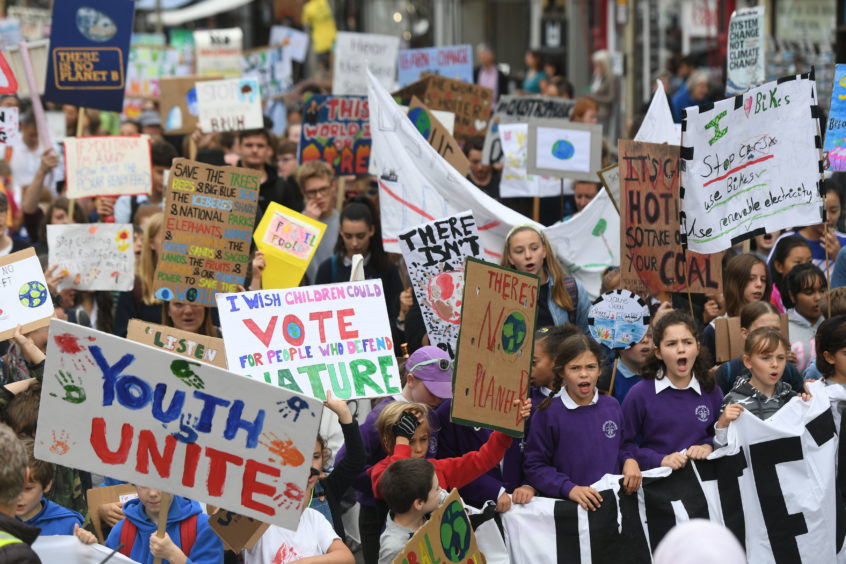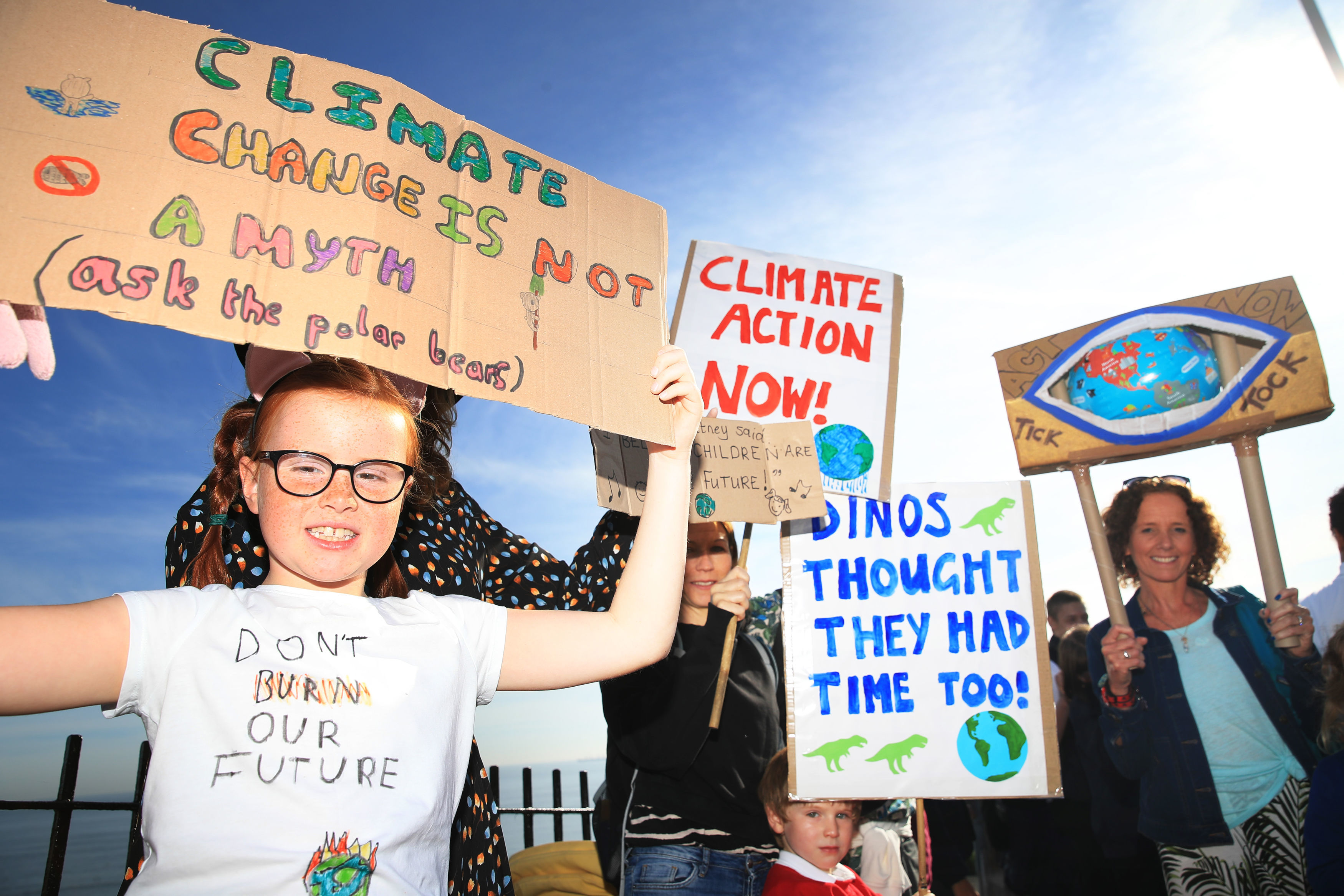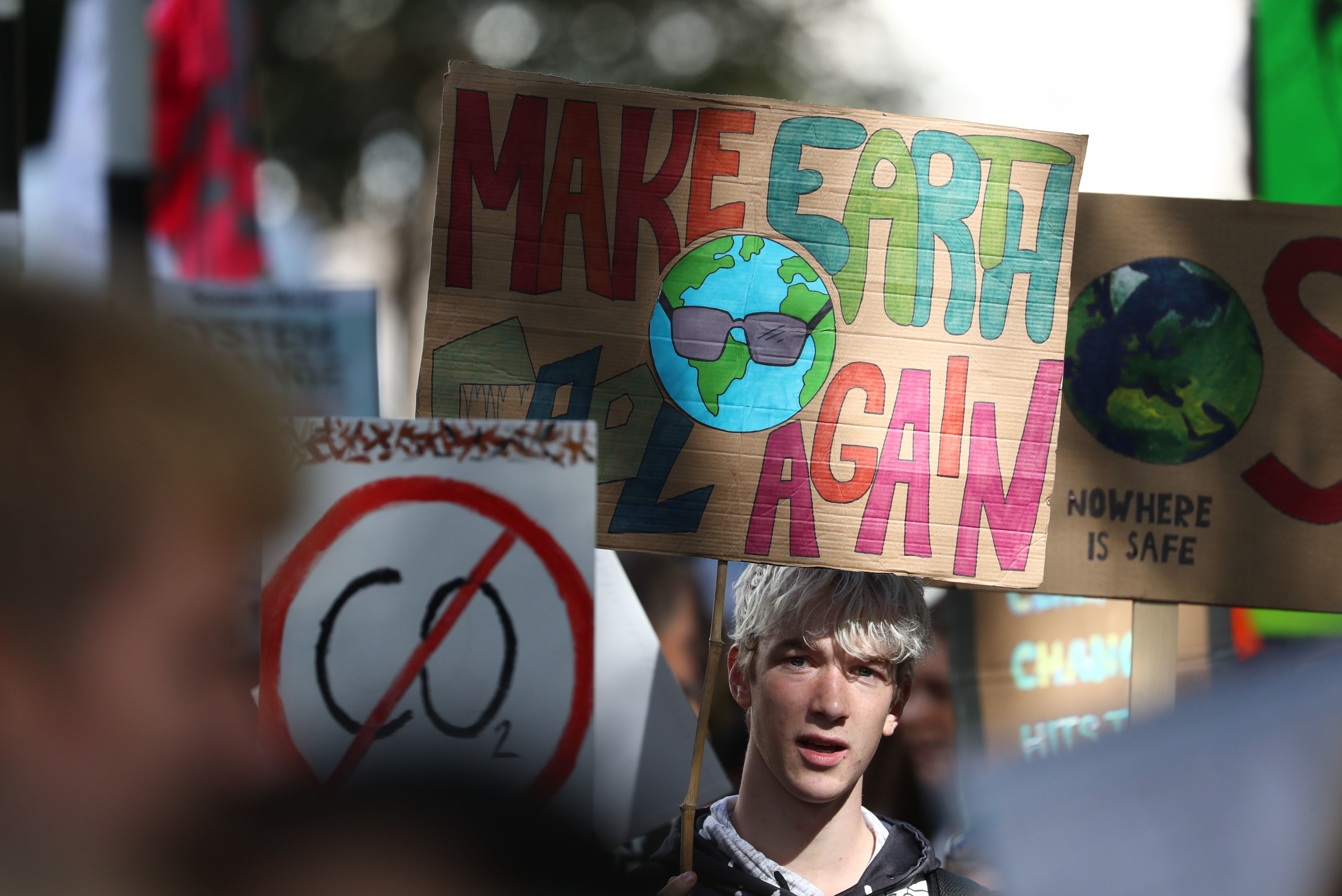
Millions of people are taking to the streets across the world in what could be the largest climate protest in history.
Some of Friday’s first protests were held in Australia, where an estimated 300,000 people gathered at more than 100 rallies calling for action to guard against climate change, with further demonstrations held across parts of Asia.
Protesters joining the climate strikes in Britain can expect a day of unseasonably warm weather as they call on businesses and politicians to cut emissions.
Children and young people across the country are preparing to walk out of lessons and lectures, with hundreds of thousands of workers expected to join them.
But business, energy and clean growth minister Kwasi Kwarteng said he could not endorse children leaving school to take part.
He told BBC Breakfast on Friday that he supports the “energy and creativity” of students, but said time spent in school is “incredibly important”.
When asked if the Government is listening to the young protesters, he added: “Their voices are being heard.
“What I do support is their energy, their creativity, and the fact that they have completely mastered these issues and take them very seriously.
“I am not going to endorse people leaving school because I think education, time spent in school, is incredibly important.”
The protests are part of a snowballing movement sparked by teenage activist Greta Thunberg’s school strikes outside the Swedish parliament.
The first large-scale protests of Friday’s “global climate strike” took place in Sydney and
Canberra, with demonstrators calling on leaders in Australia, the world’s largest exporter of coal and liquid natural gas, to take more drastic action to reduce greenhouse gas emissions.
Similar rallies are planned for around the world, with 800 events set to take place in the US and 400 in Germany.
The protests come ahead of a climate summit at the UN next week convened by secretary-general Antonio Guterres to urge countries to up their climate efforts.
Much steeper measures are needed across the globe to prevent temperature rises of more than 1.5C (2.7F) or 2C (3.6F) to avoid the worst impacts of climate change.
As if to underline the urgency of the issue, the mercury is set to hit 26C (78.8F) in parts of Britain this weekend – 8C above the average for the time of year.
Mayor of London Sadiq Khan said: “It is unbelievable that we should need global strike action for the future of our planet to be taken seriously.
“The stark reality is that our climate is changing rapidly and we are running out of time to address it.
“I hope governments around the world who are failing to take action hear the voices of millions of people, young and old, unified in their call for action to save our planet. Our future depends on it.”
Labour leader Jeremy Corbyn is due to address a rally of climate strikers outside Parliament, while other events are being held up and down the country.
The UK Student Climate Network (UKSCN) says more than 200 events are taking place across the UK, with – for the first time – adults being encouraged to join the youngsters as they strike.
UKSCN is calling on politicians to bring in a “Green New Deal” to cut the UK’s emissions to zero and improve lives, changes to education to equip youngsters to deal with the climate crisis and votes at 16 to give them a voice.
Among the many trade unions throwing their weight behind the strikes are the TUC Congress, the University and College Union and Unite.
Some businesses are actively supporting their workers to take action, with outdoor clothing company Patagonia closing stores and offices globally, and taking out adverts to support the strikers.
The Co-operative Bank has also teamed up with Unite to support its workforce to take part in the climate strikes.
Recommended for you


